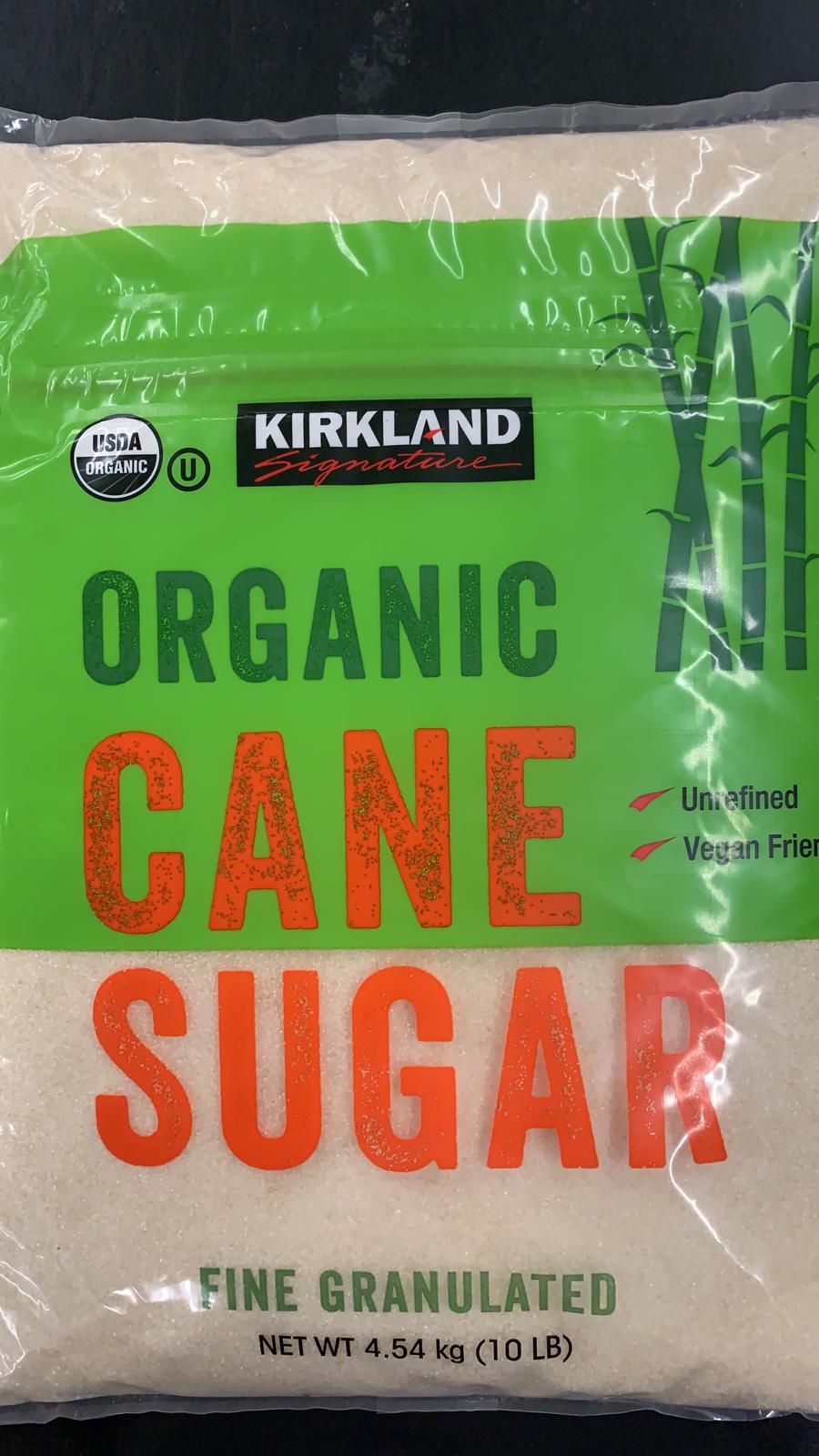A Comprehensive Overview of the Health and Economic Implications of Walking Stick Sugar Processing on Regional Areas
Walking stick sugar processing plays a critical function in forming the economic landscape of neighborhood neighborhoods, offering employment possibilities and boosting secondary markets. However, the wellness ramifications connected with high sugar consumption can not be neglected, as they add to increasing rates of excessive weight and diabetes. This nuanced vibrant welcomes an essential examination of how neighborhoods can maximize economic gains while dealing with journalism health difficulties they deal with. The exploration of educational initiatives and sustainable practices might just hold the key to reconciling these contrasting rate of interests. What strategies might neighborhoods apply to accomplish this balance?
Financial Benefits of Walking Stick Sugar Handling
Walking cane sugar processing offers significant economic benefits that extend past the prompt agricultural market. The growing and handling of sugarcane create many task possibilities, from farming to production and distribution. This work generation not just supports local economies however also fosters area advancement by supplying steady revenue resources for family members.
Furthermore, the sugar industry stimulates secondary companies, consisting of transport, devices supply, and product packaging services (Cane Sugar Processing). As these markets expand, they add to a more durable economic structure, improving overall neighborhood strength. The export possibility of processed cane sugar even more intensifies financial benefits, placing areas as competitive players in international markets
Investment in contemporary handling centers can cause enhanced efficiency and performance, thus minimizing waste and maximizing source use. This change not just profits the local economy however likewise sustains sustainability efforts by minimizing environmental effects.
In addition, the income produced from cane sugar handling can be reinvested in regional facilities, education, and health care, promoting alternative area growth. Overall, the economic advantages of cane sugar processing are complex, supplying a structure for enduring success in farming areas.
Health Risks Connected With Sugar Consumption
Excessive sugar intake presents significant wellness dangers that call for major attention. High intake of included sugars, particularly from refined foods and beverages, has been connected to various wellness issues.
In addition, high sugar usage is related to cardio disease. Raised blood sugar degrees can bring about insulin resistance, a precursor to numerous heart-related issues. Furthermore, sugar can have detrimental effects on dental health, leading to dental caries and gum tissue disease, as microorganisms in the mouth thrive on sugar, producing acids that deteriorate tooth enamel.
Moreover, arising research suggests a potential link in between high sugar intake and mental health and wellness disorders, such as anxiety and anxiousness. As areas come to grips with these wellness dangers, it becomes necessary to promote understanding and motivate much healthier nutritional options. Attending to sugar consumption is vital not just for individual wellness however additionally for the overall wellness of neighborhood areas, stressing the need for detailed public health techniques.
Environmental Effects of Sugar Production
Often ignored in discussions regarding sugar's effects is the substantial ecological effect of sugar production. The cultivation of sugarcane commonly requires substantial land usage, resulting in deforestation, loss of biodiversity, and disruption of neighborhood communities. The conversion of woodlands and wetlands right into sugar haciendas can cause habitat damage, harmful various types and modifying ecological equilibrium.
In addition, sugar production is resource-intensive, consuming significant quantities of water for watering. This can result in deficiency of regional water sources, adversely impacting both farming practices and area access to tidy water. Additionally, the use of chemical fertilizers and pesticides in sugarcane farming can add to soil deterioration and water pollution, as runoff from these chemicals goes into close-by rivers and lakes, affecting marine life and human wellness.
The ecological footprint encompasses the handling phase, where power usage and waste generation more exacerbate environmental worries. Air air pollution from burning sugarcane click for info fields, together with greenhouse gas emissions, add to environment modification. As such, the environmental effects of sugar manufacturing warrant significant factor to consider, urging stakeholders to embrace even more sustainable techniques to mitigate these unfavorable results on regional communities and communities.
Task Production and Neighborhood Growth
The environmental obstacles positioned by sugar production are often counterbalanced by its potential for economic benefits, particularly in task creation and neighborhood advancement. The walking stick sugar sector works as a substantial source of employment in lots of rural areas, supplying jobs across different skill levels, from farming labor to handling and circulation roles. This work not just supports individual families but additionally adds to the total economic vigor of regional neighborhoods.
Moreover, the facility of sugar processing centers stimulates ancillary services, such as transport services, equipment supply, and upkeep providers. As these organizations thrive, they create extra tasks and boost regional economic situations. The revenue created from the sugar sector additionally results in raised tax obligation earnings, which can be reinvested right into neighborhood solutions such as education, health care, and framework development.
In addition, the sugar sector typically takes part in neighborhood advancement campaigns, such as sustaining regional institutions and wellness programs, consequently improving the high quality of life for homeowners. By promoting strong community ties and advertising financial growth, the walking cane sugar handling market plays a crucial function in uplifting neighborhood populations, making it an important part of lasting growth methods in sugar-producing areas.
Balancing Wellness and Economic Development
In browsing the intricacies of walking cane sugar handling, an important published here challenge lies in balancing health factors to consider with economic growth. The sugar sector considerably adds to regional economic situations by creating tasks, boosting relevant industries, and raising tax obligation revenues. Nevertheless, the wellness implications connected with extreme sugar consumption can cause persistent diseases such as weight problems, diabetic issues, and cardio get redirected here issues, which can worry public health systems and reduce workforce efficiency.

Furthermore, governing structures can play a critical duty in leading sector methods in the direction of even more sustainable and health-conscious methods. By promoting partnership between government bodies, wellness companies, and the sugar market, neighborhoods can browse the duality of wellness and economic development, making sure that the advantages of walking stick sugar handling are equitably shared while focusing on public health and wellness.
Conclusion
Finally, the processing of cane sugar presents both substantial financial advantages and noteworthy wellness risks for neighborhood communities. While it promotes work development and boosts regional development, the affiliated health and wellness problems, particularly relating to obesity and diabetes, demand a mindful harmonizing act. By promoting responsible intake and investing in area education and learning and sustainable methods, it is possible to maximize economic advantages while reducing damaging wellness impacts, thereby making sure a healthier future for local populaces.
In addition, sugar can have harmful results on dental health, resulting in cavities and gum illness, as germs in the mouth prosper on sugar, generating acids that wear down tooth enamel.
Dealing with sugar usage is vital not only for private health and wellness yet likewise for the total wellness of local areas, emphasizing the need for detailed public health and wellness techniques.
Regularly overlooked in discussions concerning sugar's effects is the significant environmental influence of sugar manufacturing. The health and wellness ramifications connected with too much sugar intake can lead to persistent diseases such as obesity, diabetes, and cardiovascular concerns, which can worry public health systems and decrease workforce productivity.
